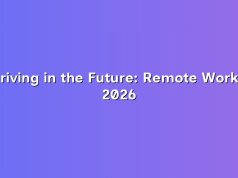The Covid pandemic has turned the world of work upside down. While some companies are coming to grips with this new reality, some others are struggling to survive. The key to survive in these difficult times is adaptability and innovation. The most visible form of innovation is the large number of companies that adapting remote work or hybrid models. Companies like Atlassian and Dropbox have permitted employees to work remotely permanently, while Google is allowing only 20% of it’s employees to work from home. The bottom line is that every company, every employee is trying to fit in. But this is only one aspect of innovation. Let’s look at some examples of how companies are innovating tactically, technologically culturally in these uncertain times.
The travel industry took one of the biggest hits during this period, wherein commercial airlines were cut in some routes up to 90%. In order to stay competitive Virgin Atlantic and others converted their passenger flights into cargo-only flights. Having witnessed success in this method many airlines are now are restructuring their aircrafts to make space for more cargo. The industry is now witnessing a new source to generate revenue.
An electronic components distributor, Digi-Key, developed an ultraviolet sanitation tunnel that significantly reduces the chances of a virus outbreak to safeguard its employees. This tunnel can disinfect 8000 plus totes in their one million-square-foot distribution centre each day. The company took three days to design this technology from scratch and they’ve decided to share their best practises with other distributors on the Electronic Components Industry Association (ECIA).
Hewlett Packard Enterprise Co. provided their employees access to HeadSpace Inc., an app for meditation and mindfulness with the intention to alleviate their employees of stress. To noone’s surprise, in two months more than 9000 employees signed up for the app and consumed more than 500,000 minutes of listening to ideas and thoughts on mindfulness.
Perhaps one of the few industries that have grown during this period is the online grocery sales. They achieved a record target of $7.2 billion, according to a Brick Meets Click/Mercatus survey. But to keep the sales going, they had turn their focus on customer concerns. Whole Foods, turned some of their physical stores into “dark stores”, retail distribution centres that caters only to online shopping. They had to make rapid changes as to how they operate, make concessions keeping a “customer first” approach. Other retailers are now following suit.
&pizza, a Washington, D.C.-based pizza chain, living true to their founding philosophy “doing good while being good” took the initiative to serve free pies to health workers in the hospitals nursing Covid-19 patients. For their employees, they provided a host of benefits such as hike in hourly pay, free access to Netflix, free travel to work, paid time off for those who wanted to join the protests related to the killing of George Floyd. Consequently, the company has retained 90% of it’s employees.
For some turning difficulties into opportunity is only beautiful saying but for some others it’s a reality. The challenge of the pandemic is not meant to destroy us but to accelerate new ways to doing things and staying alive. This may be a small sample size for the amount of innovation and adaptation that have taken place in the world since last year but it gives a hint to those still struggling out there on how to survive and flourish in the new age of work.




























